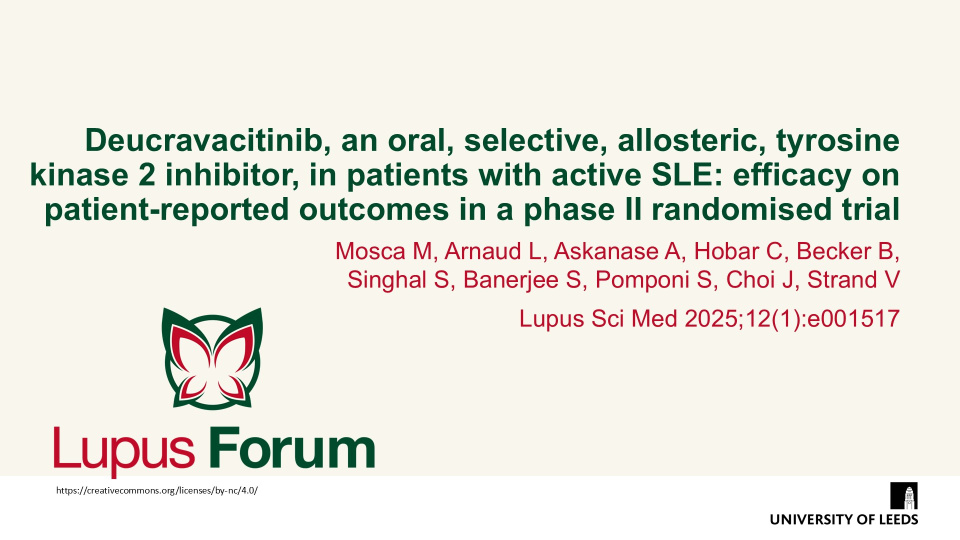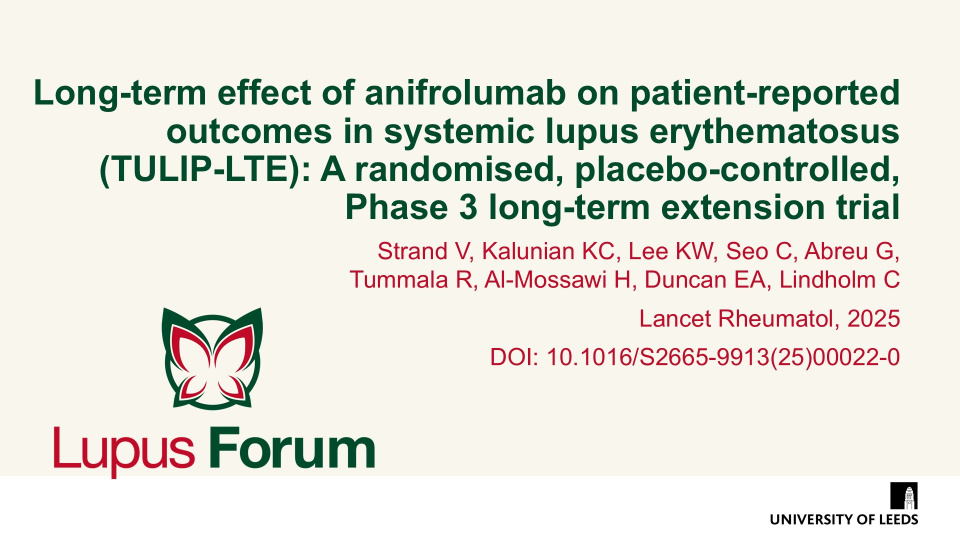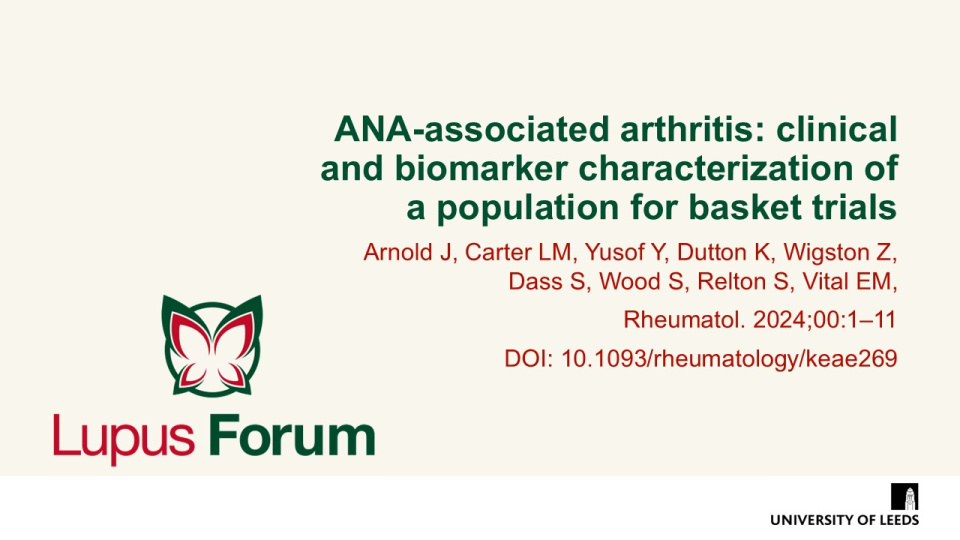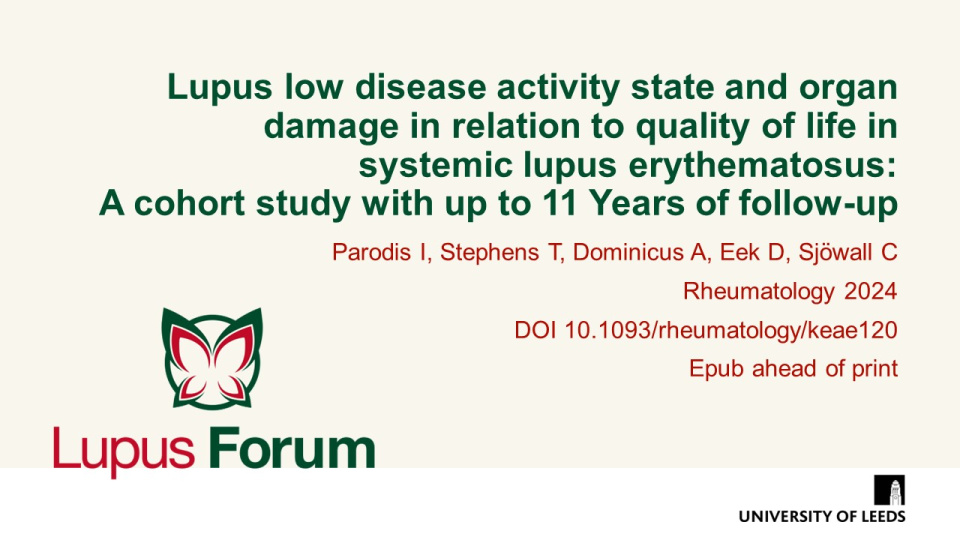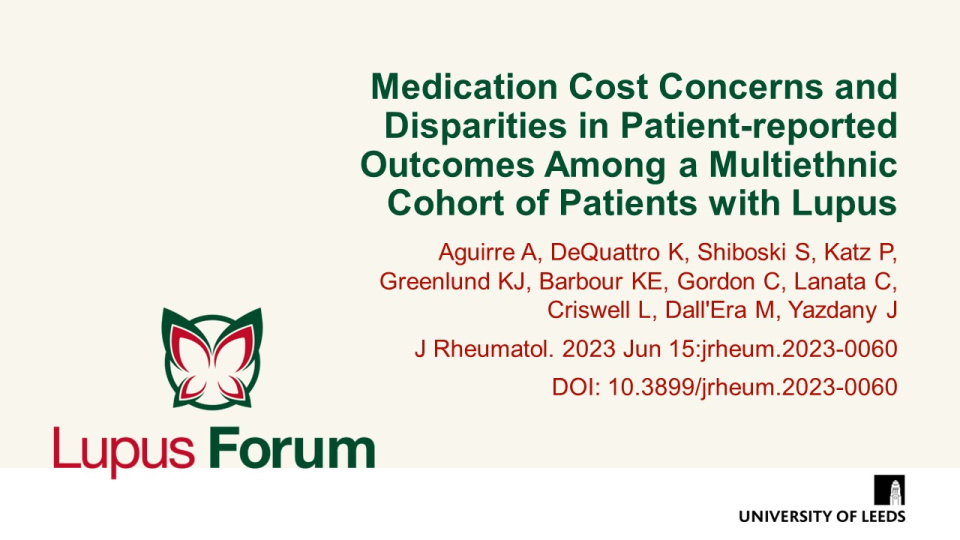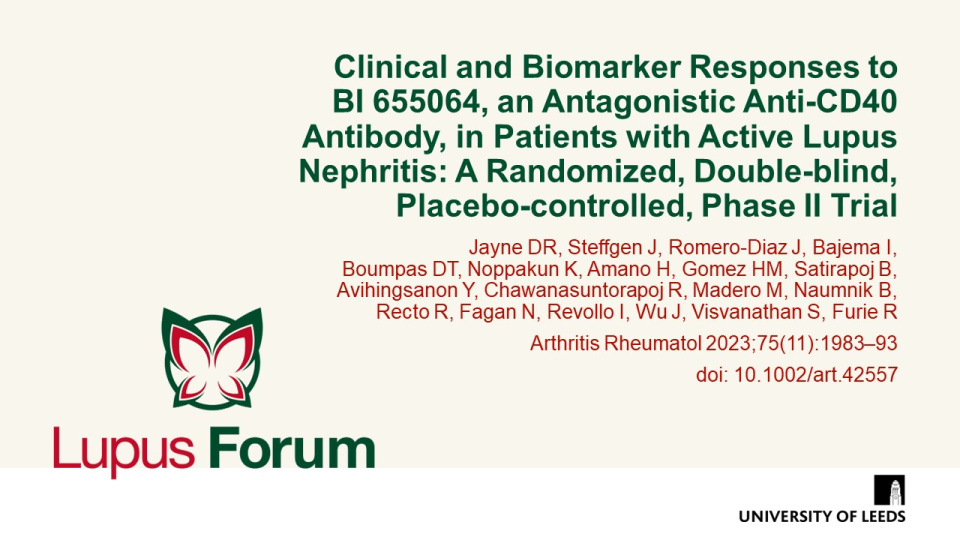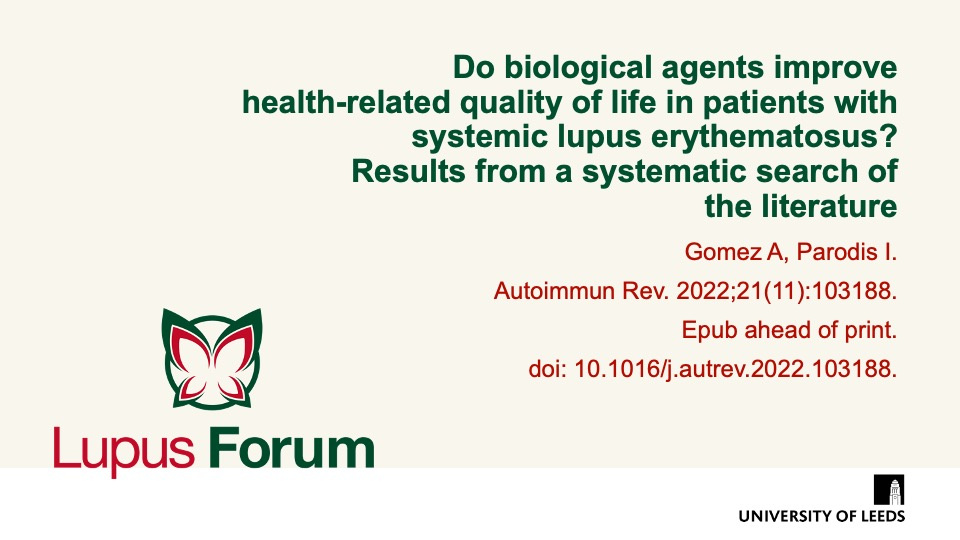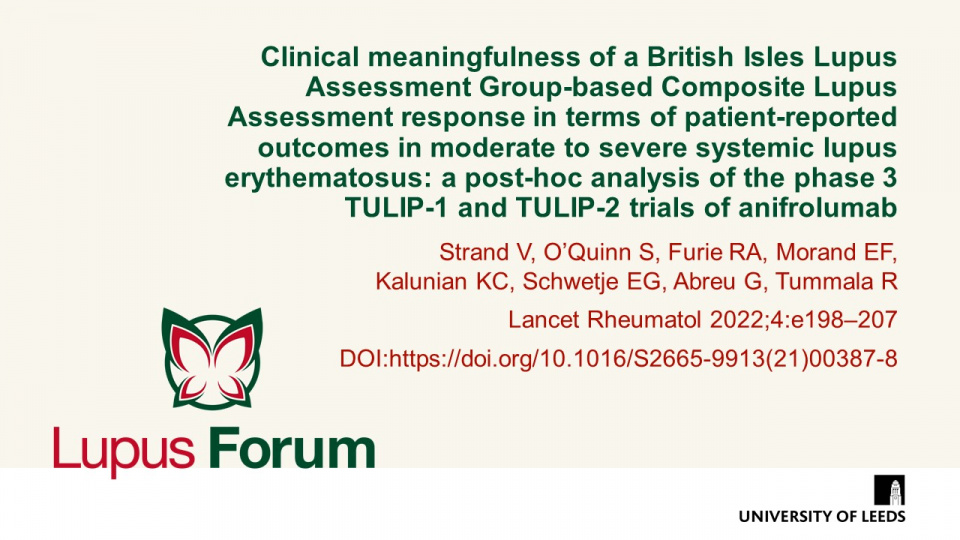Publications
Find coverage of the latest original articles on Lupus, focusing on those with data on therapeutic interventions and those that have clinical impact.
Deucravacitinib, an oral, selective, allosteric, tyrosine kinase 2 inhibitor, in patients with active SLE: efficacy on patient-reported outcomes in a phase II randomised trial
Lupus Sci Med. 2025;12(1):e001517
Patient-reported outcomes from the deucravacitinib, 48-week, phase II, PAISLEY study show that patients with SLE experienced greater improvements in pain, fatigue and health-related quality-of-life scores at Week 48 with deucravacitinib versus placebo treatment.
Long-term effect of anifrolumab on patient-reported outcomes in systemic lupus erythematosus (TULIP-LTE): a randomised, placebo-controlled, phase 3 long-term extension trial
Lancet Rheumatol, 2025 DOI 10.1016/S2665-9913(25)00022-0
Strand et al. performed an exploratory analysis to assess patient-reported outcome measures, to investigate how patients with moderate-to-severe SLE perceive the effects of long-term treatment with #anifrolumab on their health status and health-related quality of life. They report improvements in health status and health-related quality of life, including differences favouring anifrolumab compared with placebo. These numerical improvements in patient- reported outcomes occurred alongside improvements in disease activity, reduced glucocorticoid doses, and a tolerable safety profile. These data suggest that anifrolumab is an effective treatment option that might improve health-related quality of life.
ANA-associated arthritis: clinical and biomarker characterization of a population for basket trials
Rheumatol 2024 2024;00:1–11 DOI 10.1093/rheumatology/keae269
Arnold et al. assessed musculoskeletal (MSK) inflammation in ANA-associated rheumatic diseases (RMDs) and redefined ANA-associated arthritis into two distinct multi-disease clusters based on disease activity, which may support a more targeted approach to treatment. The authors confirmed that MSK inflammation is a key feature across diagnoses and responded similarly to treatments.
Keywords:
Lupus low disease activity state and organ damage in relation to quality of life in systemic lupus erythematosus: A cohort study with up to 11 years of follow-up
Rheumatology 2024 DOI 10.1093/rheumatology/keae120 Epub ahead of print
Patients with a lupus low disease activity state (LLDAS) irrespective of organ damage were significantly more likely to have favourable health-related quality of life, pain, fatigue, and overall health experience.
Keywords:
Medication Cost Concerns and Disparities in Patient-reported Outcomes Among a Multiethnic Cohort of Patients with Lupus
J Rheumatol. 2023 Jun 15:jrheum.2023-0060 DOI: 10.3899/jrheum.2023-0060
An analysis of the California Lupus Epidemiology Study cohort demonstrated that more than a quarter of participants reported at least one medication cost concern, which was associated with worse patient-reported outcomes. These results reveal a potentially modifiable risk factor for poor outcomes rooted in the unaffordability of lupus care.
Keywords:
Clinical and biomarker responses to BI 655064, an antagonistic anti-CD40 antibody, in patients with active lupus nephritis: a randomized, double-blind, placebo-controlled, phase II trial
Arthritis Rheumatol. 2023;75(11):1983–93 doi: 10.1002/art.42557.
This phase II study of BI 655064 in patients with active LN did not meet the primary endpoint of CRR at Week 52, however, post-hoc analyses suggest a potential benefit of BI 655064 180 mg in patients with active LN.
Do biological agents improve health-related quality of life in patients with systemic lupus erythematosus? Results from a systematic search of the literature
Autoimmun Rev. 2022 doi: 10.1016/j.autrev.2022.103188
Gomez, et al. summarise the effects of biological therapies on SLE patients' health-related quality of life (HRQoL) in RCT and real-life settings, based on a systematic search of the literature.
Keywords:
Clinical meaningfulness of a British Isles Lupus Assessment Group-based Composite Lupus Assessment response in terms of patient-reported outcomes in moderate to severe systemic lupus erythematosus: a post-hoc analysis of the phase 3 TULIP-1 and TULIP-2 trials of anifrolumab
Lancet Rheumatol 2022;4:e198–207
In patients with moderate-to-severe SLE, British Isles Lupus Assessment Group-based Composite Lupus Assessment (BICLA) responders report improvements in disease activity, health-related quality of life, fatigue, and pain.


